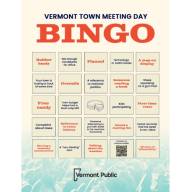The “One Big Beautiful Bill” is now law. What’s in it is unclear and many Congress people seem not to have read it. They voted the way the president told them to. It includes everything but the kitchen sink, importantly making permanent the tax cuts passed into law when 47 was 45. Aside from Congress’ abrogation of responsibility, there is one fundamental thing we expect from those we voted into office; to read the bills. I will avoid ranting about how Congress has diminished its role as an equal and separate branch of government by becoming a rubber stamp. Instead, I want to focus specifically on the health care impacts of the bill.
The bill includes draconian cuts to Medicaid, the government program that supports the health care of those most in need. Talking heads propose that no one legitimately in need will be excluded from the program and that the $1 trillion in cost savings will come from eliminating waste, fraud and abuse. This is disingenuous. While some waste, fraud and abuse undoubtedly exists, the real level of this is likely equivalent to what Elon Musk’s DOGE identified after significantly disrupting government.
This Medicaid cut could be catastrophic for Vermont. There are approximately 151,000 people in Vermont on Medicaid and another 46,000 that access partial coverage or supplemental benefits. That’s some 25% of our population. If a percentage of these people lose their health coverage several things happen. Perhaps the most consequential is the adverse impacts on their health. Early interventions are critical for getting chronic diseases like high blood pressure or diabetes under control. It’s cost effective and patient outcomes are usually better. If people are uninsured, they may not take medication or see a primary care physician in a preventative way. They just can’t afford the out-of-pocket expense. When their condition becomes acute, they show up at the emergency room and get treated; in the most expensive way possible.
Of course, this cost is absorbed and baked into the cost structure of the hospital. This “cost shift” must be absorbed somehow and several things can happen. First, the hospital can just eat the cost, generally meaning belt tightening and cutting of services. Second, insurance rates can increase. In effect, the insured citizens of the state can step up and pay for the increased cost. Third, Medicaid is a program that is funded half by the state and half by the federal government. The state could figure out how to step up and fund the federal government’s share.
None of these are palatable options. There are small regional hospitals in Vermont that are already on the cusp of financial viability. They have little room left to cut more cost. Copley closing its birthing center and UVM Medical Center closing its location in the Mad River Valley are examples of cutting services that will have real consequences to the health of Vermonters. Second, Vermont already has some of the highest insurance rates in the country. The rate increases that will be necessary to cover this loss in Medicaid revenue are huge. Given our high property taxes and cost-of-living expenses, many consumers would break. What state costs would go down to enable a health insurance rate increase? Finally, the state could find a pot of money somewhere to support a bigger share of the Medicaid cost. The state has big needs already, think education funding, and I don’t believe there are any pots of money lying around. They have also already taxed just about everything they can think of (I just re-registered my electric car and paid a $100 EV service charge in addition to the registration fee. I’m going back to a gas guzzler. Subject of a different rant).
I don’t have a good solution here, but I’m worried. I spoke to an attorney friend today who does health care transaction work; mergers, acquisitions, work-out, and that sort of thing. He’s in theMidwest and says he’s had a hundred conversations since the bill passed with hospitals and health care networks about how to find merger partners or wind-up their operations.
This is a national crisis, but it will impact Vermont severely given the rural nature of our state; our small, aging population; and our high proportion of Medicaid recipients. I am concerned that there is no obvious solution to this, that many of our rural hospitals will be forced to close, and, without exaggeration, people in the state will die. The Medicaid decisions taken in the OBBB will negatively impact the lives of Vermonters and all Americans.
Mooney lives in Waitsfield.












